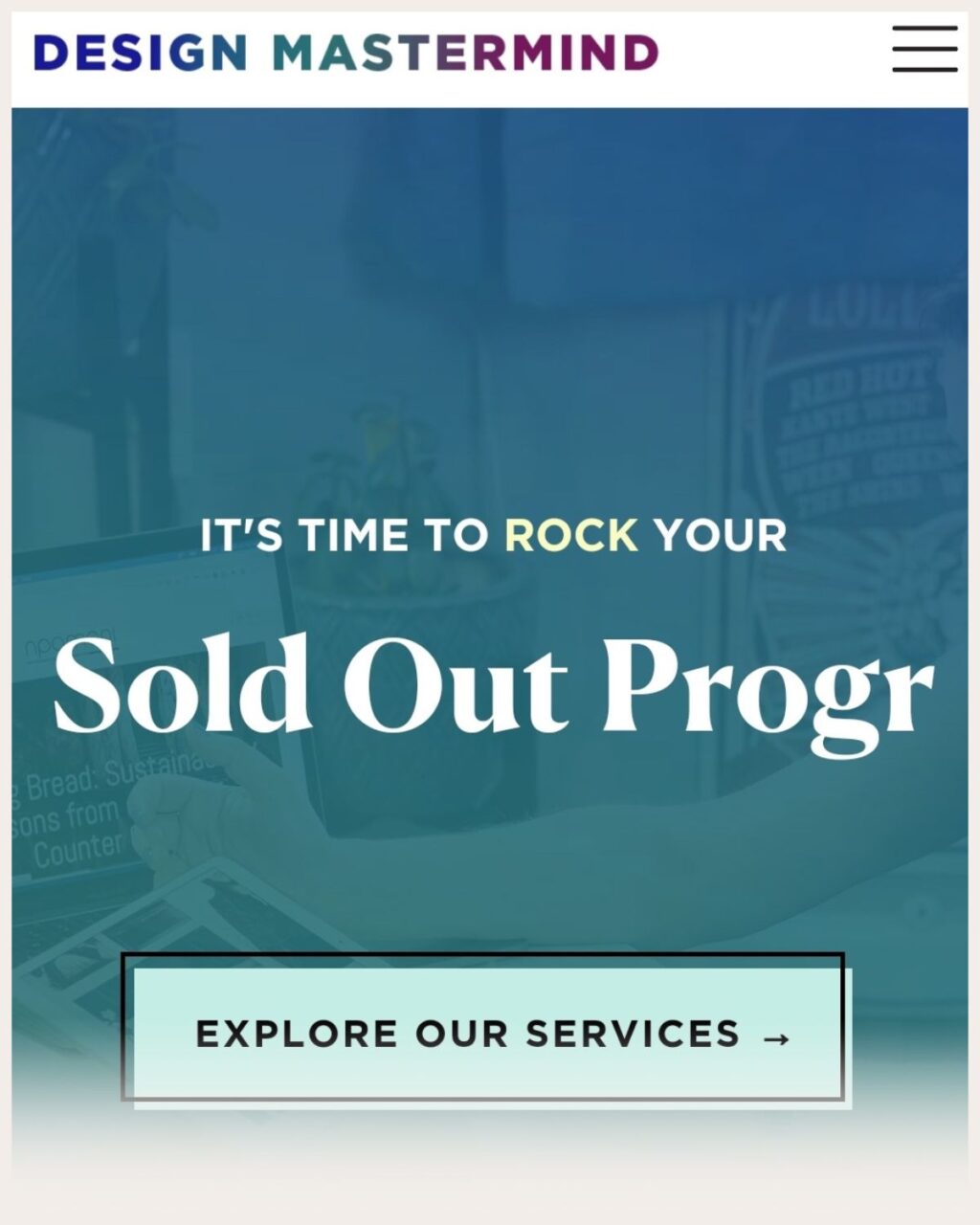Want to start a remote business this year? You’re in the right place.
I’ll share with you 15 remote business ideas that you can start from the comfort of your own home. Plus, the steps to launch one successfully.
Sound good? Read on.
Quick overview:
- Remote businesses are flexible and require less costs
- Consulting, coaching, freelancing, and content creation are a few remote business examples
- You can start a remote business online with your existing skills
What is a remote business?
A remote business is a company that doesn’t have a physical office. You and your team can work from anywhere in the world. Remote businesses are typically more flexible and more cost-effective.
Thinking of starting a remote business? You’re in good company.
By 2025, 22% of Americans will work remotely and 50% of businesses are started from home.
I’m one of them.
My business is a fully-remote online business. My team is remote and I work with people all over the world.
When I got started, the first thing I figured out was my business idea.
That’s what we’ll talk about in the next section.
Get the Ultimate Guide
for building a
6-Figure Coaching Business so you can achieve more freedom!
15 best remote business ideas to try
If you want to start a business from home, here are 15 profitable ideas:
Coaching
A coaching business lets you work from anywhere and cash in on what you’re good at.
As a coach, you advise and guide people on how to achieve their goals in a specific niche.
And there are a ton of coaching niches out there, including:
- Health coaching
- Business coaching
- Relationship coaching
- Fitness coaching
To become a coach, you don’t normally need a certification. But you might need a qualification for some niches, like health or legal coaching.
And you need experience in what you’re coaching on.
Take my student Emily Liou.
She was a recruiter for top Fortune 500 companies. With her years of experience, she created a coaching business, Cultivitae, to help people find and secure their dream jobs.

Here’s more on how to start your coaching business (fast):
Freelance writer
Freelancing is another highly profitable business model that you can do remotely.
After all, there are thousands of freelance writing jobs on job boards like UpWork, Freelance Writing Gigs, and FlexJobs.
Depending on your background, you can create a wide range of content, like:
- Copywriting: Sales-based copy like websites, landing pages, and email.
- Content writing: Marketing-based copy like blogs, guest posts, and social media.
- Ghostwriting: Book creation on behalf of clients.
- Grant writing: Completing applications for grants on behalf of charities and nonprofits.
The average salary for a freelance writer is $73,000 per year. But that’s just the average.
Consulting
Consulting and coaching are very similar remote business models – but with a key difference.
A coach helps clients solve their own problems.
A consultant gives their clients direct solutions.
As a consultant, you can draw on your own experience to create the best niche for your services.
Popular niches include:
- IT consulting
- Financial consulting
- HR consulting
- PR consulting
…and so on.
For instance, Anna, a college admissions consultant, helps students get into their dream colleges.

Affiliate marketing
Want to make passive income? Affiliate marketing is a popular remote business model.
And it’s a $17 billion industry.
So how does it work?
Affiliate marketers earn a commission on other people’s products.
To be successful, you need to be able to:
- Build an engaged audience
- Sell products that are wanted by your niche audience
Bear in mind that it takes time to grow a sizable audience that can sustain your business.
So you might want to build your remote business with a service first and then add affiliate marketing as a secondary income stream.
Web designer
Most businesses and influencers need a website, but not everyone knows how to create one.
That’s where you come in. If you have design and light programming skills, you can build a profitable remote business designing websites.
And guess what? There are thousands of available web design jobs on freelancer marketplaces like UpWork, so you can get started today.
As you build a portfolio, you can start booking clients outside of marketplaces and improve your profit margin.
My web designer, Laura Patricelli from Design Mastermind, has built a thriving business by bundling her services into easy packages.

Tutoring
Teaching adults or kids online is an accessible way of building a business from home.
You can use sites like:
Depending on how much time you have and the platform you use, you can reach five, six, or multiple six figures.
Many years ago, I myself built a six-figure tutoring business (though it was offline).
As for qualifications, it varies. You don’t necessarily need a degree to tutor online, but some platforms require it for certain subjects.
Get the Ultimate Guide
for building a
6-Figure Coaching Business so you can achieve more freedom!
For example, if you want to teach English, you might need a TEFL qualification. Luckily, it’s easy to find a TEFL course online.
However, these qualifications only apply if you want to work for established online tutoring companies.
If you can build a brand outside of the platforms, you’ll have more control over your prices and the types of clients you tutor.
Photographer
If you have a passion for taking photos, this is for you.
By starting a photography business, you can be your own boss and do what you love.
Like with most services, you need to choose a profitable niche first. This will help you market your services within your local community and beyond.
For example, you could specialize in portraits, branding, events, and so on.
You don’t need any official qualifications, but you do need an amazing portfolio. That and the ability to network will help your business thrive.
Plus, if you build a strong online presence, you could even work globally.
Virtual assistant
Becoming a VA could be a good move for you if you’re naturally organized and want to support fellow business owners.
Your daily tasks may include:
- Email management
- Scheduling
- Admin tasks
If you can specialize in a lucrative niche (like legal virtual assisting), you can increase your income above the average.
Or you can offer services like bookkeeping and social media management to create higher-ticket packages for your clients.
Marketing services
The marketing industry grows 5% each year on average. And with businesses spending around 13% of their revenue on marketing, it’s a great industry to join if you have the skills.
Some services you could offer include:
- Social media marketing
- SEO
- Digital marketing
- Email marketing
These all work well as productized services that you can sell in packages to clients. That way you can scale your work and grow your business faster.
Now, you might be wondering:
“Don’t you need a marketing degree to work in marketing?”
It can help, but the most important thing is your results.
Focus on building a portfolio and you’ll be able to charge high-ticket prices for the transformation you offer.
Online courses
Creating an online course can be highly profitable and fulfilling.
With platforms like Teachable, you don’t even need your own website to build your course.
Plus, you can create a course on any niche – from building tiny homes to training a puppy.
But there’s a caveat: I don’t recommend that you jump into online courses straight away.
Why? Well, if you’re a new service business owner, you don’t know your audience yet.
Your audience will tell you what to create as you’ll hear the same questions over and over again.
By creating a course that answers those questions, you’re more likely to be successful.

Here’s more on how to build a course business:
Travel planner
Some people love traveling but hate travel planning (including me).
If you love organizing flights, booking hotels, and planning itineraries, you could help us out.
You might need a license to sell holidays so you’ll need to check the regulations around travel agencies.
But travel planning, on the other hand, can just involve researching and presenting travel itineraries that the client can book themselves.
Event planner
Event planning is a highly fulfilling career and a lucrative business to run.
It’s also surprisingly low-cost to start. You don’t need much more than an internet connection and a good network of vendors to get started.
Although many event planners make over $80,000 per year, it’s stressful work.
In fact, event planning is often on the list of most stressful jobs in the world.
But, if you have a talent for managing a team of creatives and scheduling events, it could be a remote business for you.
Data entry/analytics
Data analysts collect, organize, and interpret data on behalf of clients. On the other hand, data entry work involves inputting data from one source to another.
And it can be highly profitable – especially if you target lucrative industries like law and finance.
This idea requires some tech knowledge depending on the platforms your clients use, but you don’t need any official qualifications.
To find data entry jobs, UpWork or Fiverr are great resources.
As a data analyst, you can pitch to companies directly to outsource their data work.
And there are plenty of listings on LinkedIn too.
Get the Ultimate Guide
for building a
6-Figure Coaching Business so you can achieve more freedom!
Editing or translation services
Translation is a great business for anyone fluent in two or more languages.
If you want to make a thriving business, it helps to become accredited but you don’t have to. Like with most services, the results and your contacts are more important.
If you can make a deal with publishing houses and prove your work, you can succeed without a qualification.
Editing is similar.
Multiple businesses hire editors including online publications, publishing houses, newspapers, self-published authors, and so on.
As a remote editing or translation business, you can work with clients from around the world.
That widens your work opportunities – especially if you’re fluent in a niche language.
Accounting or bookkeeping service
There are around 1.65 million accountants in the US, and it continues to be in demand.
As an accountant or bookkeeper, you can help businesses and individuals manage their finances.
But to do that, you’ll need a degree or diploma in accounting or bookkeeping.
Some states also require a license before opening an accounting business as opposed to working for a corporate employer.
Remote accountants can charge more for their services and diversify their clientele. Therefore, accounting or bookkeeping can be highly profitable.
Next, let’s take a look at why starting a remote business can be a good idea.
What are the benefits of running a remote business?
Starting a remote business comes with many benefits.
Here are four:
- More freedom and flexibility: Owning a remote business means you can work from anywhere at any time. Therefore, you can adapt your work to family obligations, travel, and other important areas of your life.
- Reach more talent: Not only can you reach a global audience as a remote business, but you can also recruit from around the world. So you reach the most talented people in their field.
- Faster business growth: Because remote businesses tend to be highly profitable, you can grow faster. How? By reinvesting business profits into growing the business. You can also sell more one-to-many products online, which increases your profit margin even more.
- Lower overhead costs/profitability: Running a remote business typically means you have lower expenses. For example, you don’t need office spaces to pay for.
Now that you know the benefits of running a remote business, let’s take a look at how to start your own.
How do you start a remote business?
To start a remote business, you need to:
- Create a plan for your business
- Set up your business
- Build your team
- Get your first clients
Though not necessarily in that order… Let’s talk about it.
1. Create a plan for your business
Creating a plan for your business is NOT the same as creating a business plan.
Let me explain.
A business plan is great if you’re looking for funding. But most remote businesses don’t need one.
The most important things you need to know are:
- Your niche
- Your services
- Your plan to get clients
First, your niche is your specialization.
For example, my niche when I started my business was to help small businesses use digital advertising to grow their businesses.
I had acquired those skills in my 9-5.
To figure out your niche, take a look at your skills and interests.
Need help? Watch this video:
Once you know your niche, it’s time to define your services.
Creating packages doesn’t need to be complicated. You can look at similar businesses to yours for inspiration on how they price their work and the types of services they offer.
My advice is to keep it simple.
Distill your work into one core service. (And price it depending on the services you offer. For example, when you’re starting out, a coaching or consulting package can be priced at $1,500.)
That way, you can price your work for the results you create, not the hours you spend.
Plus, you can standardize your services so it’s easier to train others when you expand your team.
As for your plan for getting clients, we’ll talk about that in detail in a later section.
Tip: If you want a business plan to define these things, I have a template for a one-page business plan here.
2. Set up your business
Want a clear roadmap for setting up your business today?
This checklist will help.
However, let’s go over the legal part.
How do you register your remote business?
First, you need to decide which business structure makes the most sense for you.
There are two main legal structures to choose from:
- Sole proprietorship
- Limited liability company (LLC)
(The IRS talks about both in detail here.)
They have different registration and management processes, so it’s important to choose the easiest and cheapest option to start.
Remember:
You can always change your business structure as your business grows.
Now what about licensing and certifications?
This completely depends on your niche.
For example:
If you’re starting an accounting agency, you’ll need the relevant qualifications and licenses to carry out your services.
On the other hand, work like photography, marketing, virtual assisting, and writing don’t require any qualifications or licenses to get started.
I didn’t have a digital advertising certification when I started my business – the results I helped my clients get were the proof they needed to hire me.
Bottom line: Research the legalities around your chosen niche in your state and make sure you comply before you start trading.
Next up: Building a team.
Get the Ultimate Guide
for building a
6-Figure Coaching Business so you can achieve more freedom!
3. Build your team
A common myth is that you need a team to build a successful business.
The truth is, it depends on the business you want to build.
Kat Boogaard is an example of a six-figure freelance writer who built her business on her own.
But, if you want to scale your remote business, it can help to build a team to lighten your load.
You can start by hiring contractors for specific tasks, like having a virtual assistant to help with admin.
The benefits of working with contractors are:
- You have more flexibility with their work contract. (For example, you don’t have to fulfill full-time or part-time hours.)
- You don’t have any overhead costs.
- You don’t need to pay employment taxes.
- You can scale your business faster.
On the other hand, full-time employees are more dedicated to your business and can help you scale your services.
Example:
Say you own a coaching business. You can hire more professional coaches to service more clients and raise your revenue.
I personally work with an amazing team of contractors, many of whom have been part of my business for many years.
When hiring, think about the skills and qualities you need in an employee.
It’s not just about what they’re like on paper, but also how they’ll fit into your company culture.
So be clear in your job description the exact type of person you’re looking for.
From there, the interview stage is crucial.
Ask them about their experience, schedule, and payment expectations.
Be clear about your expectations and the day-to-day requirements of the role.
If you find the right fit, make a compelling offer.
Once you’ve made an offer, onboard your new team member by sharing all the processes and systems you’ve set up for your business.
As you keep working together, give consistent feedback to help them grow.
Note: I recommend that you work with a few clients by yourself and learn what help you need before hiring anyone (employees or contractors).
Let’s talk about that in the next section.
4. Get your first clients
How do you find your first clients?
To start, focus on getting one or two clients to begin with.
That way, you can refine your services and learn how to manage your remote business.
With that goal in mind, looking for clients becomes way easier.
Let’s look at some effective, “low-hanging-fruit” strategies for making your first sale:
- Tap into your network: Your network is one of the best, untapped resources for finding clients. After all, your friends and family want to see you succeed. Let them know the service you offer – they might need them or know someone who does.
- Master one social media platform: Think about where your target audience likes to hang out online. Focusing on that one platform, create high-quality posts that educate and entertain your audience. As you interact with your followers and build connections, you can offer your services to the people who resonate with your work.
- Join industry podcasts: If you don’t have an audience yet, podcasts can help you reach more people. Pitch yourself as a guest expert on podcasts in your niche. You’ll benefit from the credibility and trust the podcast already has with its established audience.
It takes effort in the beginning to get your first clients. That’s why I tell my students to focus on one strategy at a time.
I used Facebook groups (which were big at the time) to find my first clients.
I then mastered other areas of the platform, including livestreams, groups, and advertising.
That helped me grow to multiple seven figures. It was only years later that I turned to other marketing channels, such as YouTube and search engine optimization.
Once you make your first sales and learn more about your audience, finding future clients becomes exponentially easier.
Next steps
So now you know how to create a thriving remote business.
Starting a business from the comfort of your home can be fulfilling and freeing.
But there’s a lot more you need than a good remote business idea to be successful.
Want a clear step-by-step plan?
Get my FREE blueprint that teaches you how to go from employee to remote entrepreneur:

Want to Build a 6-Figure Coaching Business So You Can Achieve More Freedom?
When you sign up, you’ll also receive regular updates on building a successful online business.
Read more:
Overcome Your Fear of Starting a Business
Finally Go From Employee to Entrepreneur
The Best Six-Figure Business Ideas








